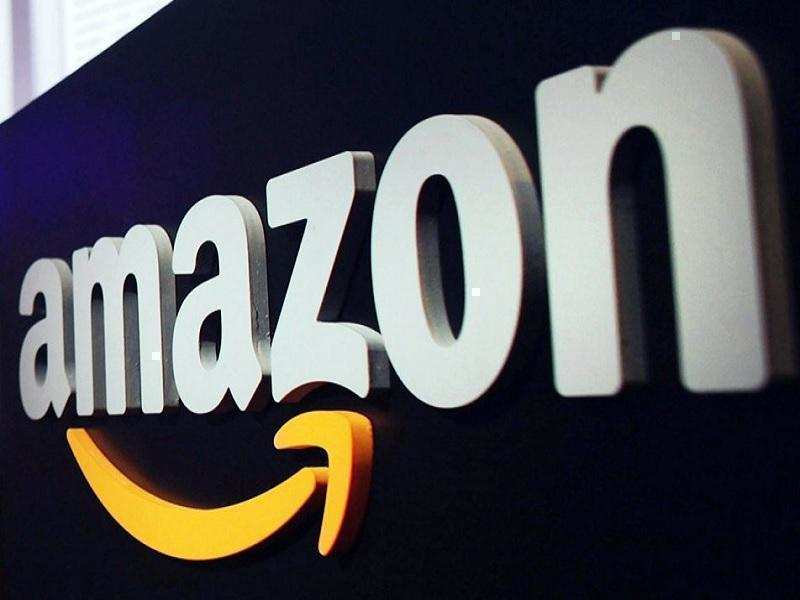 Two days before the new e-commerce rules kick in, e-commerce giants Walmart-backed Flipkart and Amazon are still hopeful of an extension to the February 1 deadline and are making last-ditch efforts to convince the government that more time is needed for revamping operations.According to multiple industry executives, these two companies continue to engage -- directly as well as through associations and trade bodies -- with government officials seeking to convince them to push the deadline.In December, the government had announced new regulations - under Press Note 2 - that would bar online marketplaces with foreign investments from selling products of the companies where they hold stakes and ban exclusive marketing arrangements.Another provision states that the inventory of a vendor will be seen as controlled by a marketplace, if over 25 per cent of the vendor's purchases are from the marketplace entity, including the latter's wholesale unit.These changes are expected to hit Amazon and Flipkart the hardest.
Emails sent to Amazon didn't elicit a response, while Flipkart declined to comment.A senior executive, who did not wish to be identified, said these companies remain hopeful and are still reaching out to officials to explain the overhaul required in business models to ensure compliance with the new rules.The person added that there are 'complexities' that need to be addressed and doing so will require more time.Another executive said these companies have highlighted that they have committed billions of dollars to the Indian market and that these investments could be at risk.Amazon had committed an investment of over USD 5 bn, while Walmart made its biggest bet pumping in USD 16 bn for 77 per cent stake in Flipkart.Given the magnitude of investments at stake, the companies are also keeping their plan B ready in case the deadline isn't extended.Senior leaders and officials are working on an overdrive to ensure that the exclusive partnerships are restructured and other aspects are taken care of to ensure compliance, the official quoted above said.Amazon and Flipkart have already written to the government stating that they need more time to understand the details of the framework.However, it seems unlikely that the Department of Industrial Policy and Promotion (DIPP) would postpone the implementation date.Smaller e-commerce firms like Snapdeal and ShopClues as well as offline retailers have also written to Commerce Ministry, urging the government to not give into pressure from US companies and authorities.
Two days before the new e-commerce rules kick in, e-commerce giants Walmart-backed Flipkart and Amazon are still hopeful of an extension to the February 1 deadline and are making last-ditch efforts to convince the government that more time is needed for revamping operations.According to multiple industry executives, these two companies continue to engage -- directly as well as through associations and trade bodies -- with government officials seeking to convince them to push the deadline.In December, the government had announced new regulations - under Press Note 2 - that would bar online marketplaces with foreign investments from selling products of the companies where they hold stakes and ban exclusive marketing arrangements.Another provision states that the inventory of a vendor will be seen as controlled by a marketplace, if over 25 per cent of the vendor's purchases are from the marketplace entity, including the latter's wholesale unit.These changes are expected to hit Amazon and Flipkart the hardest.
Emails sent to Amazon didn't elicit a response, while Flipkart declined to comment.A senior executive, who did not wish to be identified, said these companies remain hopeful and are still reaching out to officials to explain the overhaul required in business models to ensure compliance with the new rules.The person added that there are 'complexities' that need to be addressed and doing so will require more time.Another executive said these companies have highlighted that they have committed billions of dollars to the Indian market and that these investments could be at risk.Amazon had committed an investment of over USD 5 bn, while Walmart made its biggest bet pumping in USD 16 bn for 77 per cent stake in Flipkart.Given the magnitude of investments at stake, the companies are also keeping their plan B ready in case the deadline isn't extended.Senior leaders and officials are working on an overdrive to ensure that the exclusive partnerships are restructured and other aspects are taken care of to ensure compliance, the official quoted above said.Amazon and Flipkart have already written to the government stating that they need more time to understand the details of the framework.However, it seems unlikely that the Department of Industrial Policy and Promotion (DIPP) would postpone the implementation date.Smaller e-commerce firms like Snapdeal and ShopClues as well as offline retailers have also written to Commerce Ministry, urging the government to not give into pressure from US companies and authorities.
 NEW DELHI: Premium handset maker OnePlus has said it does not have a contractual commitment with Amazon India, and it is its own "strategic choice" to sell devices exclusively on the online marketplace.The comments come ahead of the February 1 deadline for online marketplaces to comply with FDI rules. In December, the government had announced new norms - under Press Note 2 - that bar online marketplaces with foreign investments from holding exclusive marketing arrangements."(We) Never really had the exclusive commitment to Amazon. It has been our choice that we want to sell exclusively but it is not because of any commitment that we have made contractually. So, the new regulations will not really have any impact," OnePlus India General Manager Vikas Agarwal told PTI.He added that it was the company's "strategic choice" to be on one platform to make it easier for customers to buy its products.The new rules are expected to hit Walmart-owned Flipkart and Amazon, the hardest. Both players have been lobbying hard - both directly and through associations - for extension in the February 1 deadline.The two players have argued that they need more time to understand the details of the framework.Agarwal said the company does not anticipate any major changes in its business model or operations because of the new regulations."...We will continue selling on Amazon, we do not plan to move to any other platform in the near future," he added.
The Chinese player cornered the largest share of the premium smartphone segment in India during the December 2018 quarter with 36 per cent share, ahead of rivals like Samsung and Apple.OnePlus entered the Indian market in 2014 and started selling its devices through Amazon India. While initially the company had an invitation-based model, it opened up sales to larger public with subsequent launches.Mobile phones and electronics account for a large portion of the sales on Flipkart and Amazon. With the new regulations barring any exclusive tie-ups, these online marketplaces are said to be exploring mechanisms to re-work their existing arrangements with brands to ensure compliance with the new regime.Interestingly, All India Mobile Retailers Association (AIMRA) - claiming to represent over 2 lakh mobile phone retail stores - has written to the government urging that any extension in deadline will be adverse for the trade. They alleged that small traders were "struggling in the face of unethical and illegal practices" by the e-commerce giants.Traders' body Confederation of All India Traders (CAIT) has also warned the government of a national campaign with a political fallout, if it defers the February 1 deadline.Last year, OnePlus expanded its distribution to brick-and-mortar retail in India and started selling through Croma and Reliance Digital stores.Agarwal said a majority of OnePlus' business in India is still online as it has recently started selling through offline channels."So, overall offline is yet very small for us, it may pick up next year because offline response is also very good. But as of now, the overall share is still hugely online," he added.While OnePlus also sells devices and accessories through its own website, the volumes are low.
NEW DELHI: Premium handset maker OnePlus has said it does not have a contractual commitment with Amazon India, and it is its own "strategic choice" to sell devices exclusively on the online marketplace.The comments come ahead of the February 1 deadline for online marketplaces to comply with FDI rules. In December, the government had announced new norms - under Press Note 2 - that bar online marketplaces with foreign investments from holding exclusive marketing arrangements."(We) Never really had the exclusive commitment to Amazon. It has been our choice that we want to sell exclusively but it is not because of any commitment that we have made contractually. So, the new regulations will not really have any impact," OnePlus India General Manager Vikas Agarwal told PTI.He added that it was the company's "strategic choice" to be on one platform to make it easier for customers to buy its products.The new rules are expected to hit Walmart-owned Flipkart and Amazon, the hardest. Both players have been lobbying hard - both directly and through associations - for extension in the February 1 deadline.The two players have argued that they need more time to understand the details of the framework.Agarwal said the company does not anticipate any major changes in its business model or operations because of the new regulations."...We will continue selling on Amazon, we do not plan to move to any other platform in the near future," he added.
The Chinese player cornered the largest share of the premium smartphone segment in India during the December 2018 quarter with 36 per cent share, ahead of rivals like Samsung and Apple.OnePlus entered the Indian market in 2014 and started selling its devices through Amazon India. While initially the company had an invitation-based model, it opened up sales to larger public with subsequent launches.Mobile phones and electronics account for a large portion of the sales on Flipkart and Amazon. With the new regulations barring any exclusive tie-ups, these online marketplaces are said to be exploring mechanisms to re-work their existing arrangements with brands to ensure compliance with the new regime.Interestingly, All India Mobile Retailers Association (AIMRA) - claiming to represent over 2 lakh mobile phone retail stores - has written to the government urging that any extension in deadline will be adverse for the trade. They alleged that small traders were "struggling in the face of unethical and illegal practices" by the e-commerce giants.Traders' body Confederation of All India Traders (CAIT) has also warned the government of a national campaign with a political fallout, if it defers the February 1 deadline.Last year, OnePlus expanded its distribution to brick-and-mortar retail in India and started selling through Croma and Reliance Digital stores.Agarwal said a majority of OnePlus' business in India is still online as it has recently started selling through offline channels."So, overall offline is yet very small for us, it may pick up next year because offline response is also very good. But as of now, the overall share is still hugely online," he added.While OnePlus also sells devices and accessories through its own website, the volumes are low.
 Hyderabad: US-based e-commerce giant Amazon is all set to move into its largest campus outside the US in Hyderabad by April this year, making the city home to one of its largest employee base at a single site.Once the Amazon campus, which is spread over 10 acres at Nanakramguda in Hyderabad’s IT district and will have a built-up space of around 3 million sft, opens, it is expected to accommodate around 26,000-30,000 employees, Telangana IT and industries principal secretary Jayesh Ranjan told TOI.“The 3 million sft facility will put up around 26,000-30,000 employees…that is the discussion they had with us. By April they want to start shifting the first of their employees to the new campus. Currently, they are all located in multiple rented buildings here and there,” Ranjan said.Interestingly, with a headcount of nearly 30,000 at the new campus, Hyderabad will account for nearly half the headcount of Amazon in India, which is currently estimated to be around 60,000 people.However, Amazon officials declined to comment on the new campus or its Hyderabad headcount or share any details. “The new state-of-the-art campus is expected to be ready by 2019 and would house thousands of employees managing back-end operations for Amazon's various global business and technology teams,” the company had said in a release when it laid the foundation stone for the dedicated campus in Hyderabad.Amazon, which set up shop in Hyderabad in 2005-06, has ramped up its operations at a furious pace in India and Hyderabad, in particular, where it also has its largest fulfilment centre in the country spread over 4 lakh sft at the Shamshabad airport. While Amazon founder and CEO Jeff Bezos had, in 2014, committed to invest $2 billion in India to take on domestic rivals like Flipkart and Paytm, it has since significantly ramped up its investments in the country to over $4 billion.
Hyderabad: US-based e-commerce giant Amazon is all set to move into its largest campus outside the US in Hyderabad by April this year, making the city home to one of its largest employee base at a single site.Once the Amazon campus, which is spread over 10 acres at Nanakramguda in Hyderabad’s IT district and will have a built-up space of around 3 million sft, opens, it is expected to accommodate around 26,000-30,000 employees, Telangana IT and industries principal secretary Jayesh Ranjan told TOI.“The 3 million sft facility will put up around 26,000-30,000 employees…that is the discussion they had with us. By April they want to start shifting the first of their employees to the new campus. Currently, they are all located in multiple rented buildings here and there,” Ranjan said.Interestingly, with a headcount of nearly 30,000 at the new campus, Hyderabad will account for nearly half the headcount of Amazon in India, which is currently estimated to be around 60,000 people.However, Amazon officials declined to comment on the new campus or its Hyderabad headcount or share any details. “The new state-of-the-art campus is expected to be ready by 2019 and would house thousands of employees managing back-end operations for Amazon's various global business and technology teams,” the company had said in a release when it laid the foundation stone for the dedicated campus in Hyderabad.Amazon, which set up shop in Hyderabad in 2005-06, has ramped up its operations at a furious pace in India and Hyderabad, in particular, where it also has its largest fulfilment centre in the country spread over 4 lakh sft at the Shamshabad airport. While Amazon founder and CEO Jeff Bezos had, in 2014, committed to invest $2 billion in India to take on domestic rivals like Flipkart and Paytm, it has since significantly ramped up its investments in the country to over $4 billion.
 BENGALURU: As the February 1 deadline for online marketplaces to comply with the changes in FDI guidelines approaches, offline retailers are keeping up the pressure on the government, urging it to not give into any requests for an extension by Amazon and Flipkart.All India Mobile Retailers Association (AIMRA), which counts 25,000 mobile retailers as its members, has also written to members of Lok Sabha and Rajya Sabha, accusing Amazon India and Flipkart of indulging in unethical and illegal practices. ET has a copy of the letter.The grouping had written to the Department of Industrial Policy and Promotion(DIPP) and commerce minister Suresh Prabhu at an earlier date.ET on January 28 reported smaller ecommerce marketplaces such as Snapdeal and ShopClues, online social commerce startups like Shop 101, and some online-only brands have come together to oppose any deadline extension for the large online marketplaces.Changes to FDI guidelines notified by the government on December 26, 2018, restrict marketplaces such as Flipkart and Amazon from selling products from sellers in which they have an equity interest. It also disallowed marketplaces from entering into exclusive partnerships with brands.Both Flipkart and Amazon have written to the government asking for extensions ranging from four to six months to comply with the new rules.Smartphones account for the biggest chunk of sales on ecommerce marketplaces, with analysts estimating that around 40% of all devices sold in India now happens online. AIMRA has pegged that number higher, claiming that 56% of all mobiles sold in the country happens online.The body claimed Flipkart and Amazon have eroded their sales by entering into exclusive partnerships with brands such as Xiaomi, OnePlus and Samsung. Moreover, AIMRA has claimed that the discounts offered by these players to incentivise buyers and grow their market share have adversely affected small offline retailers.
BENGALURU: As the February 1 deadline for online marketplaces to comply with the changes in FDI guidelines approaches, offline retailers are keeping up the pressure on the government, urging it to not give into any requests for an extension by Amazon and Flipkart.All India Mobile Retailers Association (AIMRA), which counts 25,000 mobile retailers as its members, has also written to members of Lok Sabha and Rajya Sabha, accusing Amazon India and Flipkart of indulging in unethical and illegal practices. ET has a copy of the letter.The grouping had written to the Department of Industrial Policy and Promotion(DIPP) and commerce minister Suresh Prabhu at an earlier date.ET on January 28 reported smaller ecommerce marketplaces such as Snapdeal and ShopClues, online social commerce startups like Shop 101, and some online-only brands have come together to oppose any deadline extension for the large online marketplaces.Changes to FDI guidelines notified by the government on December 26, 2018, restrict marketplaces such as Flipkart and Amazon from selling products from sellers in which they have an equity interest. It also disallowed marketplaces from entering into exclusive partnerships with brands.Both Flipkart and Amazon have written to the government asking for extensions ranging from four to six months to comply with the new rules.Smartphones account for the biggest chunk of sales on ecommerce marketplaces, with analysts estimating that around 40% of all devices sold in India now happens online. AIMRA has pegged that number higher, claiming that 56% of all mobiles sold in the country happens online.The body claimed Flipkart and Amazon have eroded their sales by entering into exclusive partnerships with brands such as Xiaomi, OnePlus and Samsung. Moreover, AIMRA has claimed that the discounts offered by these players to incentivise buyers and grow their market share have adversely affected small offline retailers.
 KOLKATA: Amazon and Walmart-owned Flipkart have told mobile phones, electronics and other companies, which sell their wares exclusively on these platforms, that they will be able to operate like they do now — albeit with some tweaks and rephrasing of agreements — once the revised ecommerce FDI norms come into effect.Two senior industry executives said top officials of these two marketplaces have told the companies that while they can’t mandate exclusivity, the brands can still be exclusive to them as they are free to adopt their channel and sales strategy.A rewording of the pacts that the companies have entered into with the marketplaces or the sellers would be required to make it clear the brands are exclusive to the platform as part of their sales strategy and the marketplace has no role in it, they said.Changes to Ensure Onus of Exclusivity Lies on the BrandAs part of this, Flipkart has already replaced the phrase “#Only on Flipkart” for the exclusive brands or products prominently displayed on its marketplace with “#Just Here”. Amazon, too, has started to downplay the “Amazon Exclusive” tag displayed for the exclusive brands or models on its marketplace.“All these changes are to ensure the onus of exclusivity lies on the brand rather than the marketplace. The marketplaces have taken extensive legal opinion, after which they have assured us that the exclusive brands can continue to operate like before,” said one of the executives.An Amazon India spokesperson said the company has no comments to offer. An email sent to Flipkart did not elicit any response as of press time Tuesday.Brands such as BPL, TCL’s iFFalcon, Blaupunkt TV, Sanyo, Thomson, Asus and Meizu operate only online in India through Amazon or Flipkart. Several leading brands and companies like Samsung, Xiaomi, Realme, Honor, Huawei, Onida, TCL, OnePlus and Vu have either launched online-exclusive models or are largely dependent on ecommerce.The new FDI norms are due to take effect from February 1, unless the government decides to defer their implementation. The norms specify that any ecommerce marketplace entity will not mandate any seller to sell any product exclusively on its platform.Manmohan Ganesh, chief operating officer of BPL, which sells its products only on Amazon, said the company’s exclusive relationship with the marketplace was a result of its own channel strategy and not dictated by the US company. “We have been assured by our partners on the platform that our exclusive channel strategy will remain since it’s our preferred strategy,” he said.Avneet Singh Marwah, CEO at Super Plastronics, the licensee for Thomson TV brand, said it will remain exclusive to Flipkart, while complying with the terms of the new policy.The spokesperson of TV maker iFFalcon said the brand will continue to be sold through Flipkart. “With this online-only model, we will continue to offer the best price directly from the brand,” he said.Another stumbling block for online-exclusive brands is the clause which stipulates that “inventory of a vendor will be deemed to be controlled by ecommerce marketplace entity if more than 25% of purchases of such vendor are from the marketplace entity or its group companies”.An executive said Flipkart has informed exclusive partners that it will appoint multiple sellers for these brands instead of one, as is done now, to comply with the 25% clause. Flipkart executives will also distance themselves from the planning of sales strategy for these brands.“Amazon has already started such a process where it distances itself from any sales promotion planning of the brands. All such activities are now done by the seller team,” added the executive.Executives from the marketplaces have met senior officials of online-exclusive brands to assure them that it will be business as usual when the revised FDI norms come into play from February 1, even as they have sought extension of the deadline by 3-6 months.Online-focussed brand Realme has lined up a new smartphone launch next month exclusively on Flipkart while Samsung is debuting two mobile handsets under its new online-exclusive ‘M’ series for sales on Amazon.
KOLKATA: Amazon and Walmart-owned Flipkart have told mobile phones, electronics and other companies, which sell their wares exclusively on these platforms, that they will be able to operate like they do now — albeit with some tweaks and rephrasing of agreements — once the revised ecommerce FDI norms come into effect.Two senior industry executives said top officials of these two marketplaces have told the companies that while they can’t mandate exclusivity, the brands can still be exclusive to them as they are free to adopt their channel and sales strategy.A rewording of the pacts that the companies have entered into with the marketplaces or the sellers would be required to make it clear the brands are exclusive to the platform as part of their sales strategy and the marketplace has no role in it, they said.Changes to Ensure Onus of Exclusivity Lies on the BrandAs part of this, Flipkart has already replaced the phrase “#Only on Flipkart” for the exclusive brands or products prominently displayed on its marketplace with “#Just Here”. Amazon, too, has started to downplay the “Amazon Exclusive” tag displayed for the exclusive brands or models on its marketplace.“All these changes are to ensure the onus of exclusivity lies on the brand rather than the marketplace. The marketplaces have taken extensive legal opinion, after which they have assured us that the exclusive brands can continue to operate like before,” said one of the executives.An Amazon India spokesperson said the company has no comments to offer. An email sent to Flipkart did not elicit any response as of press time Tuesday.Brands such as BPL, TCL’s iFFalcon, Blaupunkt TV, Sanyo, Thomson, Asus and Meizu operate only online in India through Amazon or Flipkart. Several leading brands and companies like Samsung, Xiaomi, Realme, Honor, Huawei, Onida, TCL, OnePlus and Vu have either launched online-exclusive models or are largely dependent on ecommerce.The new FDI norms are due to take effect from February 1, unless the government decides to defer their implementation. The norms specify that any ecommerce marketplace entity will not mandate any seller to sell any product exclusively on its platform.Manmohan Ganesh, chief operating officer of BPL, which sells its products only on Amazon, said the company’s exclusive relationship with the marketplace was a result of its own channel strategy and not dictated by the US company. “We have been assured by our partners on the platform that our exclusive channel strategy will remain since it’s our preferred strategy,” he said.Avneet Singh Marwah, CEO at Super Plastronics, the licensee for Thomson TV brand, said it will remain exclusive to Flipkart, while complying with the terms of the new policy.The spokesperson of TV maker iFFalcon said the brand will continue to be sold through Flipkart. “With this online-only model, we will continue to offer the best price directly from the brand,” he said.Another stumbling block for online-exclusive brands is the clause which stipulates that “inventory of a vendor will be deemed to be controlled by ecommerce marketplace entity if more than 25% of purchases of such vendor are from the marketplace entity or its group companies”.An executive said Flipkart has informed exclusive partners that it will appoint multiple sellers for these brands instead of one, as is done now, to comply with the 25% clause. Flipkart executives will also distance themselves from the planning of sales strategy for these brands.“Amazon has already started such a process where it distances itself from any sales promotion planning of the brands. All such activities are now done by the seller team,” added the executive.Executives from the marketplaces have met senior officials of online-exclusive brands to assure them that it will be business as usual when the revised FDI norms come into play from February 1, even as they have sought extension of the deadline by 3-6 months.Online-focussed brand Realme has lined up a new smartphone launch next month exclusively on Flipkart while Samsung is debuting two mobile handsets under its new online-exclusive ‘M’ series for sales on Amazon.
 Two days before the new e-commerce rules kick in, e-commerce giants Walmart-backed Flipkart and Amazon are still hopeful of an extension to the February 1 deadline and are making last-ditch efforts to convince the government that more time is needed for revamping operations.
Two days before the new e-commerce rules kick in, e-commerce giants Walmart-backed Flipkart and Amazon are still hopeful of an extension to the February 1 deadline and are making last-ditch efforts to convince the government that more time is needed for revamping operations.


